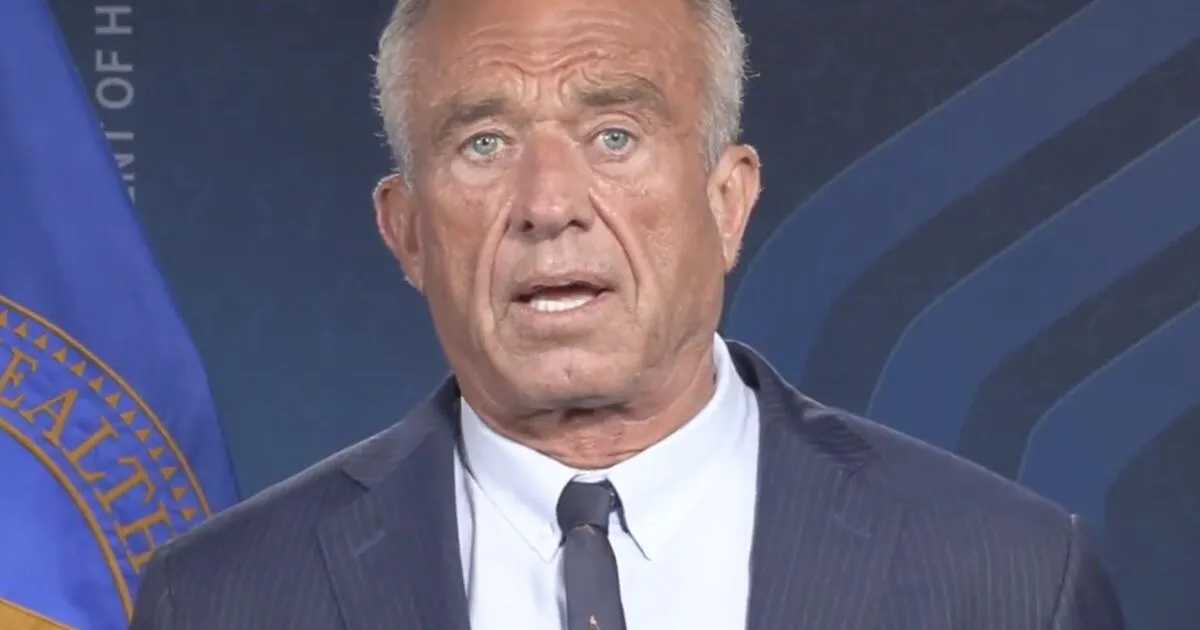
In a recent announcement, Health and Human Services Secretary Robert F. Kennedy Jr. justified the cancellation of approximately $500 million in federal grants dedicated to mRNA vaccine research. At first glance, the data he presented seemed compelling, comprising around 400 research papers in a lengthy 181-page document labeled “COVID-19 mRNA ‘vaccine’ harms research collection.” In a video shared on X, Kennedy stated, “After reviewing the science and consulting top experts at NIH and FDA... HHS has determined that mRNA technology poses more risk than benefits” for respiratory viruses like COVID-19 and flu.
However, a deeper examination of the referenced data reveals significant discrepancies. Most of the cited studies—over 360—are not directly related to the COVID-19 vaccines; instead, they focus on the effects of COVID-19 infections. Furthermore, many papers that do mention the vaccines rely on research conducted on laboratory mice, not human subjects. In several instances, the vaccines were administered in ways that do not mimic human vaccination practices (e.g., direct injection into the brain).
Crucially absent from the data packet were comprehensive studies that validate the safety and efficacy of mRNA vaccines. For instance, a thorough study published on July 28 by Danish researchers examined over 1 million recipients of the latest mRNA COVID booster. This research assessed the occurrence of 29 potential adverse side effects, including heart, liver, and kidney failures, as well as neurological conditions. The findings indicated “no statistically significant risk” of these effects stemming from the vaccine, including concerns regarding myocarditis, which has been frequently highlighted by anti-vaccine advocates.
Moreover, the data packet did not encompass estimates of lives saved due to COVID vaccines. A study led by Stanford epidemiologist John P.A. Ioannidis, published on July 25, suggested that up to 4 million lives were saved by vaccines since the onset of the global vaccination campaign in 2020. This estimate is considered conservative; a report by the Commonwealth Fund in 2022 indicated that the vaccines prevented over 18 million hospitalizations and more than 3 million COVID-related deaths in the U.S. alone.
The disparity between Kennedy’s claims and established scientific facts has raised serious concerns among public health experts. Jake Scott, an infectious disease specialist at Stanford Medical School, identified the data citations as an example of “textbook confirmation bias,” signifying an effort to validate preexisting beliefs. Experts have criticized Kennedy's decision to revoke funding for 22 contracts supporting mRNA vaccine research, labeling it a detrimental blow to both science and public health.
Michael Osterholm, an infectious disease expert from the University of Minnesota, expressed his disapproval, stating, “This was the most dangerous public health decision I have ever seen made by a government body.” He emphasized that if Kennedy fully believes in the risks associated with mRNA vaccines, the logical course of action should be to promote further research rather than stifle it.
For context, mRNA technology allows vaccines to instruct the body on how to produce components of a pathogen that can trigger an immune response. This innovative approach enables rapid vaccine development against new pathogens, making it invaluable in the fight against pandemics. Experts like Drew Weissman from the University of Pennsylvania have highlighted the far-reaching applications of mRNA vaccines, which extend beyond COVID-19 to include targets like flu, HIV, and even cancer.
The development of mRNA COVID vaccines was significantly supported by $2.5 billion in federal funding and purchase guarantees to Moderna through the Biomedical Advanced Research and Development Authority (BARDA). Interestingly, this funding approach was initially lauded during the Trump administration but faced backlash from anti-vaccine factions as vaccination campaigns progressed.
In his video explanation, Kennedy made several claims about mRNA vaccines that contradict available scientific data. He stated that mRNA vaccines do not perform well against respiratory viruses, yet data from the Centers for Disease Control and Prevention (CDC) shows significantly lower COVID case and death rates among vaccinated populations when compared to unvaccinated individuals.
Kennedy also suggested that vaccines contribute to viral mutations; however, experts clarify that viruses mutate naturally and that widespread vaccination can actually reduce the emergence of new variants. Vaccinologist Peter Hotez affirmed that no single mutation has been shown to render vaccines ineffective, and boosters have maintained efficacy against evolving variants.
The data package that Kennedy's agency relied upon for his decision lacks credibility and is not backed by reputable U.S. government scientists. The compilation itself originated from a book titled “TOXIC SHOT,” an anthology of essays from anti-vaccine advocates. This decision threatens to hinder American scientific advancement for years to come, contradicting the notion of “America First” by potentially ceding critical medical innovations to other regions.
In light of rising skepticism towards mRNA technology, which has been fueled by figures like Kennedy, a responsible public health leader would advocate for scientific innovation rather than amplify misinformation. The mRNA platform represents a historic leap forward in healthcare, and its full potential has yet to be realized, particularly in the United States.